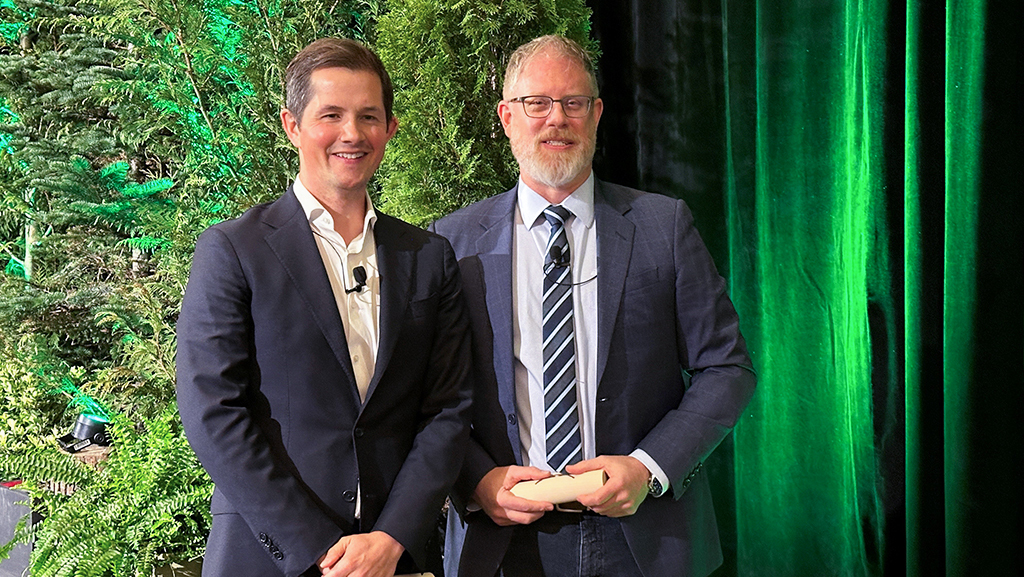A public opinion expert sees both opportunity and new challenges as British Columbians become more aware of forest management and wildfires.
Abacus Data CEO David Coletto recently spoke at the BC Council of Forest Industries annual conference held in Vancouver with a session titled, From Crisis to Consensus: How Wildfires are Changing the Public Conversation on Forestry.
Coletto said while public perception of the forestry industry previously hinged on its relevance and proximity to a given community, after a record season of wildfires and previous natural disasters, all of the province understands the sector’s significance.
“It struggled to demonstrate its relevance to people who didn’t live in communities that work in the industry. What we learned from research was that the crisis around the wildfires has created a moment where, regardless of your political stripe, where you live in B.C., you know this is a problem. You think it’s going to get worse and you know that forestry is actually part of the solution,” Coletto said.
He added the awareness of the industry is an opportunity for forestry to bring new audiences into a conversation “they’ve been trying to have for years, which is that they are sustainable, care for the resource. They’re not just out there clear cutting and taking everything that they can.”
“Some of that work, the active forest management, can be part of the solution. The public opinion survey we did connects those dots, that people perceive there’s a problem, that the solution exists and they accept it. They want government and industry to do more of it across the province,” Coletto said.
Forestry and construction intertwined
He added a more positive outlook towards the forestry industry will have knock-on effects for the construction industry.
“The more forestry and forests are part of the lexicon the more that you’ll find likely buy in for things like mass timber and see these products that come out of the forestry sector being used in construction. There’s also similarities in terms of the role construction has in order to mitigate the broader impacts of climate change but also specifically forest fires,” he said. “Those in the construction sector can also be seen as part of the solution to helping stop this problem from getting worse.”
Wildfires could land politicians in the hot seat
Coletto also cautioned the industry the wider public may not know in detail what forest management means as a practice, and they don’t need to.
“We can’t expect people to become experts in something they may not be interested in or have the capacity to know, but it’s not needed. You do need public support and a recognition that whatever technical process exists, it is the solution. I don’t need to know how active forest management works. I just need to trust and have confidence in all the stakeholders involved who are actively using it or promoting it,” he said.
The forestry industry itself must continue to communicate with the public by acknowledging people are not informed just by traditional news channels, Coletto added.
“A someone who studies public affairs and strategic communications, it’s very clear the generation gap between how people get news and information has never been wider,” he said. “You almost have to be relentlessly telling your story to as many different channels as you can because that’s just how fragmented the market is today.”
Coletto also said wildfires could even shift or influence the outcome of the next provincial election, set to occur this fall.
“If the summer is as bad as people are predicting in terms of wildfires, how could it not be part of the conversation that people want to have? I think it would be smart political strategy for everybody involved in politics today to be offering up solutions to people on how they would tackle this issue,” he said.




Thank your for your article about this already started wildfire season in Canada the public opinion that was ignored this winter. It was story of the year in 2023.
I can tell you that no Federal Minsters would even discuss a Canadian solution this winter that has a 10-year track record globally in 3,000 forests on 4 continents to significantly reduce hectors burned and cost of fighting fires by 80-90%.
We have statistics to show doing this is a region the size of Northern Alberta.
Why not?
BC Forestry said they would be putting out an RFP in 2025!
We have a solution that can be deployed fairly quickly and very cost effectively, especially for Indigenous communities.